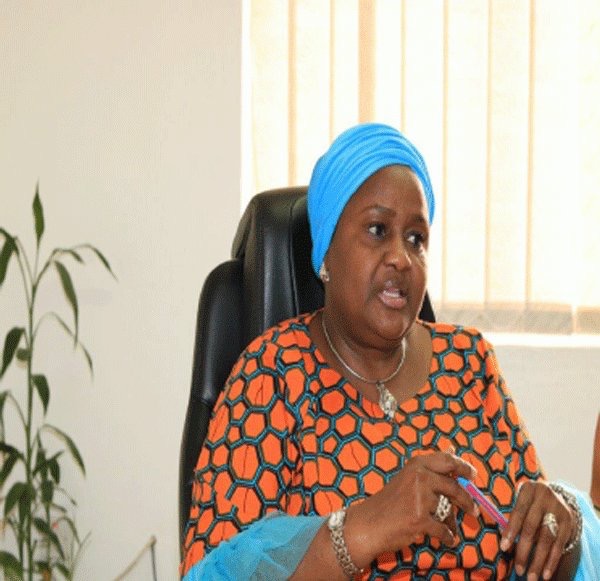
Director General, National Pension Commission (PenCom), Mrs. Aisha Dahir-Umar, in this interview, speaks on Micro Pension Plan (MPP) and how informal sector would lift pension industry through the Contributory Pension Scheme (CPS). She also speaks on the commitment of Pencom in attracting more investible funds into the economy among other issues.
The CPS had only been opened to the formal sector since inception, until the Federal Government officially extended it to the informal sector in March 2019. How would you assess the takeoff of the (MPP) scheme so far?
The Micro Pension Plan was launched by the President of the Federal Republic of Nigeria Muhammadu Buhari on March 28, 2019. The very successful launch by the President is an indication that the Federal Government is committed to ensuring that informal sector workers are also covered under the Contributory Pension Scheme (CPS).
Effectively, we are just about two months into implementation after the launch. Sequel to the launch, registration of Contributors by Pension Fund Administrators (PFA) has commenced and is ongoing. Public enlightenment and engagement with relevant Unions and Associations are also ongoing. In order to sustain the tempo and momentum achieved from the launch, the Commission is planning to embark on sensitisation events in the six geopolitical zones of the country. I would say that we are off to a good start and the gains of the scheme would manifest in due course.
How will the informal sector boost the pension industry with the implementation of MPP?
PenCom’s Micro Pension Plan (MPP) allows the informal sector contributors under the CPS to withdraw at least 40 percent of the contributions in their Retirement Savings Accounts. The extension of the CPS to the informal sector and the flexibility of its operation is one of the incentives expected to encourage participation and growth of the Pension Industry beyond the N9.03 trillion assets size. The MPP policy speaks to PenCom’s commitment to attracting more investible funds into the economy. Nigeria’s informal sector is a sleeping giant. The potential of the sector, estimated at $240 billion, is largely untapped.
Unlike the formal economy, the informal economy has grown faster in size at an annual average rate of about 8.5 percent between 2015 and 2018. This growth was seen in the informal sector and an increase in employment it provides implies higher household income and lower poverty in the country. This underground economy is particularly large in Nigeria, with the International Monetary Fund (IMF) estimating it to constitute about 60 percent of the entire Nigerian economy.
This represents about $240 billion. The National Pension Commission (PenCom) identified with this informal sector with the launch of the Micro Pension Plan (MPP), which has enabled artisans such as photographers, caterers, hairdressers, motorcycle service operators, tailors, fashion designers, carpenters, painters among others to embrace Contributory Pension Scheme (CPS) and protect their future and businesses.
What is the commitment of PenCom to the financial inclusion strategy of the CBN?
The introduction of the MPP by the Commission is a major step to promoting financial inclusion at the grassroots. Section 2(3) of the Pension Reform Act, 2014 (PRA 2014) provides that employees of organisations with less than three employees as well as the self-employed persons shall be entitled to participate in the Contributory Pension Scheme in accordance with guidelines issued by the Commission. Majority of these categories of persons covered are in the informal sector and have generally low and irregular incomes. Those participating in the MPP would require a functional bank account, which would be used for transactions such as contributions and withdrawals. It is therefore obvious that implementing MPP will definitely promote financial inclusion.
You said that the informal sector contributors under the Contributory Pension Scheme will be allowed to withdraw at least 40 percent of the contributions in their Retirement Savings Accounts before retirement according to the National Pension Commission. What impact do you think this will have on the growth of the pension industry and economy?
First of all, it is important to understand how this aspect of the Micro Pension Plan (MPP) works. The MPP arrangement allows for every contribution to be split into two, comprising 40% for contingent withdrawal and 60% for retirement benefits. The Micro Pension Contributor is eligible to access the 40% portion 3 months after making the initial contribution. This flexibility is one of the incentives expected to encourage participation and consequently drive growth of the Pension Industry.
As you are aware, the informal sector workers constitute the larger percentage of the working population in the country, there is, therefore, no doubt that robust participation would result to an exponential growth of the Pension funds which would consequently, provide funding for allowable and relevant investments that would impact positively on the economy. The MPP would contribute immensely to archiving the Pension Industry’s strategic objective of covering 30 percent of the working population in Nigeria under the CPS by the end of 2024.
Prior to the implementation of the MPP, the Commission had issued guidelines and framework for MPP. These documents are expected to guide the Pension Operators in administering the MPP.
What effort is PenCom making to ensure that more artisans and other operators at the grassroots key into the scheme?
In implementing the MPP initiative, the informal sector has been segmented into three broad categories. The low-income earners, the high-income earners and the Small Medium Enterprises, SMEs.
Each of these categories is going to be targeted with appropriate MPP products and sensitization programmes that meet their peculiarities. As earlier mentioned, the Commission is engaging relevant Unions and Associations in its enlightenment drive. Some of these Unions and associations cover the artisans and grassroots operators. The Commission is aware that public enlightenment and pension education are key success factors and as such is working assiduously with the Pension Operators Association (PENOP) to ensure effective coverage.
What are the processes and the requirements needed by the informal sector to partake in the CPS?
A prospective micro pension contributor is required to open a Retirement Savings Account (RSA) by completing a physical or electronic registration form with a Pension Funds Administrator of his/her choice. The contributors may make contributions daily, weekly, monthly or as may be convenient to them.
Every contribution shall be split into two, comprising 40 percent for contingent withdrawal and 60 percent for retirement benefits. The contributor may periodically withdraw the total or part of the balance of the contingent portion of his/her RSA, including all accrued investment income thereto.
The contributor may also choose to convert the contingent portion of the contributions to the retirement benefits portion. The remaining balance in the RSA shall be available to the contributor upon retirement or attaining the age of 50 years.
How would you assess the CPS since its introduction last year?
The PenCom is, through the RSA remittances, helping to deepen the pension industry, financial system and economy. The PenCom exists for the effective regulation and supervision of the Nigerian pension industry to ensure that retirement benefits are paid as and when due.
The Contributory Pension has made the life of retirees much easier, unlike the defined benefits scheme which it replaced. PenCom has deployed the RSA Multi-Fund Structure conceived by the Commission to align with contributors’ risk appetite with their investment horizon, at each stage of their life cycle. The RSA Multi-Fund Structure is to achieve optimum returns for contributors by aligning pension savings with individual risk/return profiles, provide investment portfolio choices to contributors, and enhance the safety of pension assets.
Kindly contact us @ Naijalivetv@gmail.com
Call or Whatsapp: 07035262029, 07016666694, 08129340000







